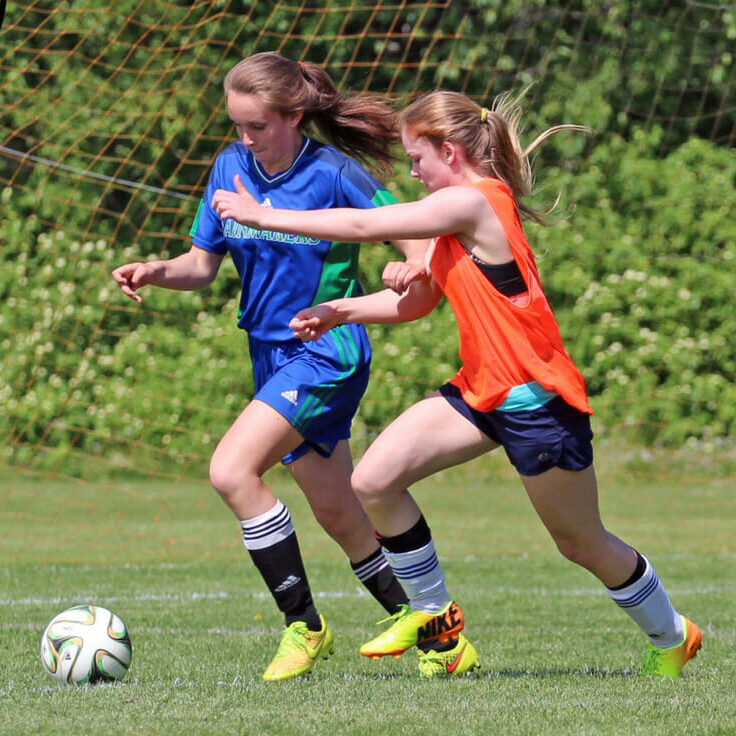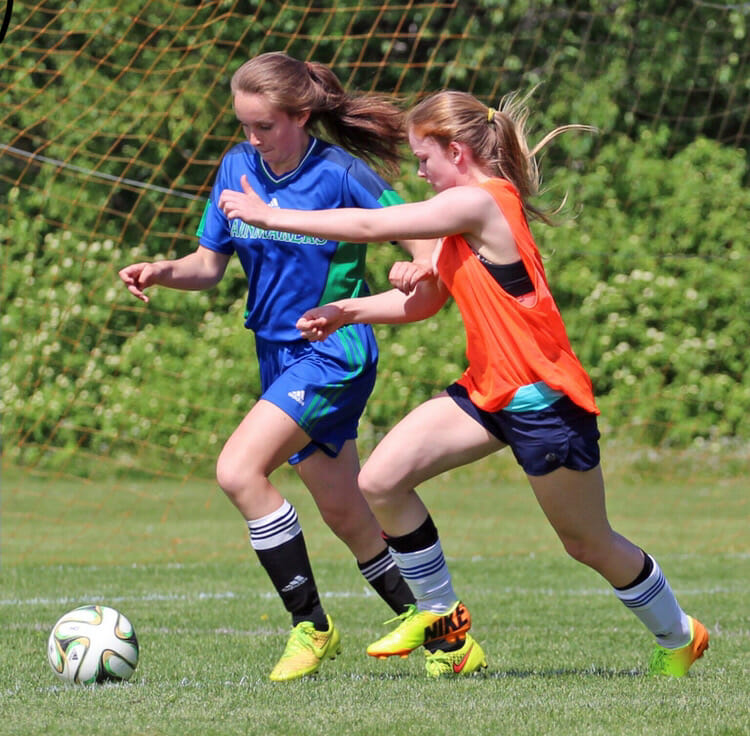
A wake-up call
The effect of nutrition deficiencies on an athlete
Alexi Armstrong knew that something was wrong. When she was 15 years old, the volleyball and soccer player was exhausted all the time, and it wasn’t adding up.
“Even if I wasn’t playing, I was constantly tired, no matter how much sleep I was getting,” she says. “I was getting really sick really easily too, like anytime someone else had a cold, I would get it.”
It was affecting her performance on the soccer pitch and the volleyball court. Armstrong was a setter for her high school’s volleyball team, the Charles Hays Secondary School (CHSS) Rainmakers, in Prince Rupert, British Columbia. She also played centre midfield for her high school soccer team and for the Prince Rupert Football Club (PRFC), competing as high as the provincial level for both sports.
Even though Armstrong was in shape, it was becoming more and more difficult to play an entire 90-minute soccer game, or complete a volleyball tournament with several games each day.
“Normally I would be able to push through it, I would be ok,” she says, but with new levels of tiredness way different than normal, “it was such a big struggle.”
And in training, “practice wouldn’t even have started yet and I would feel exhausted already.”
She struggled to improve any aspect of her game.
“I didn’t feel like my cardio was getting better or like I was getting stronger. It was like I plateaued almost,” she says.
It was a couple months of that constant exhaustion before Armstrong figured out what was wrong. She had a doctor’s appointment for something else and had blood work done, and when the results came back, she learned that had very low levels of iron, vitamin B12 and vitamin D.
Iron is used to make hemoglobin, a protein in red blood cells. Vitamin B12 is also used to make red blood cells that carry oxygen through your body. Low levels of vitamin D can also cause fatigue and a lowered immune system. Lacking those key nutrients explained why Armstrong was tired and sick all the time and why sports suddenly became that much harder.

Getting back on track
It was a straightforward solution: she immediately started taking supplements every day and within a month, she already felt like she was getting more energy back.
Another change was being more mindful about her diet. Armstrong, who eats no meat other than chicken breasts, added in more foods that are high in iron, such as spinach, and started taking Vega Protein Powder every day. Because of those changes, she was eventually to decrease her iron supplements to take them just two to three times a week.
“I was always eating healthy, but we just realized I wasn’t eating the right things sometimes,” she says. “It was a wake-up call to me.”
Now in her second year studying commerce at the University of Victoria, Armstrong gets blood work done every couple of months to make sure things are normal, but she says the biggest indication is how she feels. Last year, she says she got sick once, whereas before she would constantly have a cold.
Sports are back to normal too: last summer, she played keeper for the Breaker’s Breezers women’s soccer team in Prince Rupert.
Since then, she’s had two major ankle surgeries, but after recovering she plans to return to playing sports, with a new perspective on the importance of nutrition.






